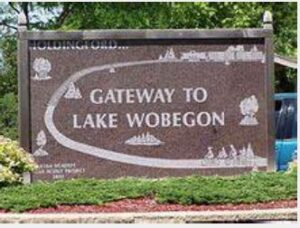Virginia has its very own Lake Wobegon, Garrison Keiller’s fictional Minnesota community where “all the children are above average.” According to a presentation made to the Charlottesville School Board last week, students in the City of Charlottesville aren’t just “above average” — they’re way above average. Indeed, the city’s public school system has identified 86% of the city’s students as “gifted,” according to the Daily Progress.
The 86%-gifted finding is all the more remarkable when you consider the fact that only half (50%) of Charlottesville public school students passed their English Standards of Learnings (SOL) exams in the 2018-19 school year, and only 20% qualified as “advanced.”
The state requires school systems to screen, refer and identify students for gifted education. The gifted label allows students to to attend summer residential governor’s schools. Gifted students also are given enrichment lessons and activities.
One might be tempted to laugh off the finding as the outcome of excessive touchy-feeliness by hand-holding, kumbaya-singing hippies passing for teachers who think that everyone is special in his or her own way. But that doesn’t seem to be what’s happening. The Daily Progress article alludes to a racial-justice angle. Under the old way of identifying “gifted” children, White students made up 73% of the gifted program, meaning only 27% of gifted students came from all other racial/ethnic classifications — Asian, Black, Hispanic and mixed race. Under the new approach, 33% of Black kids were given the gifted designation.
The sad reality is that only 4% of African American students in Charlottesville schools scored well enough on their English SATs to earn the “advanced” designation. Waving a magic wand and declaring students “gifted” does nothing to help them learn.
The Virginia Department of Education requires local school systems to identify their gifted students and develop programs to maximize their potential. Back in the days when Virginia was focused on building a world-class educational system that prepared young people to compete in a global arena, such thinking made sense. But Virginia has entered a very different era. Today the preoccupation is eliminating racial/ethnic disparities in outcomes. When gaps in educational achievement exist, they must be narrowed by any means necessary.
Many programs geared toward academic excellence are under attack as a reflection of White supremacy and institutional racism — everything from tracked classes that segregate students by academic ability to regional Governor’s Schools that admit only the intellectual elite. Charlottesville’s move to identify the vast majority of students as “gifted” is best viewed as a leveling strategy designed to reduce the outward signs of racial disparities without doing the hard work of addressing the system’s underlying failures.



